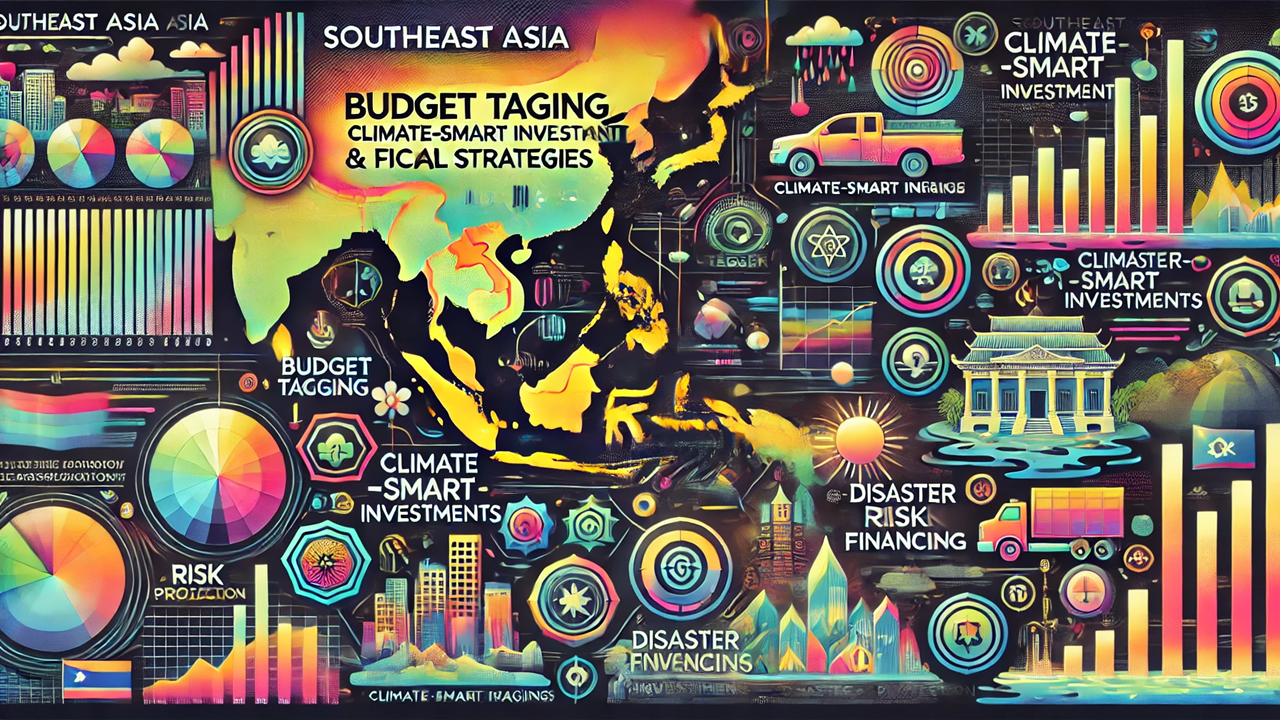Building Resilience: Fiscal Strategies to Combat Climate Risks in Southeast Asia
Southeast Asia is at the forefront of integrating climate resilience into fiscal policies, as detailed in the report Climate-Resilient Fiscal Management: Experience from Southeast Asia. The report explores innovative strategies, highlights successful case studies, and outlines actionable recommendations to strengthen fiscal frameworks against climate risks.

Climate-Resilient Fiscal Management in Southeast Asia: Insights from the Report
A groundbreaking report, Climate-Resilient Fiscal Management: Experience from Southeast Asia, published by the Asian Development Bank (ADB), sheds light on the innovative approaches adopted by Southeast Asian nations to integrate climate resilience into fiscal policies. Published by leading experts in fiscal policy and climate resilience, the report provides a comprehensive look at strategies, challenges, and opportunities for nations striving to safeguard their economies against the escalating threats of climate change.
Rising to the Challenge of Climate Vulnerability
Southeast Asia, a region marked by its rich biodiversity and economic dynamism, faces significant vulnerability to climate change. Typhoons, floods, and droughts have become increasingly frequent, inflicting immense economic and social costs. These recurring disasters underscore the urgency of implementing robust fiscal strategies to mitigate risks and strengthen resilience.
Pioneering Fiscal Strategies for Resilience
The report highlights innovative fiscal tools employed by countries in the region to address climate risks effectively,
Budget Tagging: Allocating and monitoring expenditures specifically for climate-related initiatives.
Contingency Funds: Establishing dedicated funds to ensure rapid disaster response.
Disaster Risk Financing: Developing risk-layering strategies to manage varying levels of disaster intensity.
Climate-Smart Investments: Introducing frameworks to prioritize infrastructure projects that incorporate resilience features.
Aligning Policies with Climate Goals
An integrated approach to fiscal policy is central to Southeast Asia’s efforts. The report emphasizes the importance of aligning national development plans with climate goals, requiring collaboration across sectors and government agencies. This alignment ensures that resources are strategically deployed to maximize impact.
Learning from Success Stories
The report showcases several best practices from the region,
Philippines: Implementing risk-layering strategies to optimize disaster response and recovery.
Vietnam: Investing in climate-resilient infrastructure to reduce vulnerability.
Indonesia: Launching a sovereign disaster risk insurance program to ensure financial preparedness.
These examples underscore the adaptability and innovation of Southeast Asian nations in tackling climate challenges.
Overcoming Barriers to Progress
Despite notable achievements, the region faces persistent challenges,
Resource Limitations: Insufficient financial and technical capacity hampers the implementation of comprehensive strategies.
Risk Assessment Gaps: The absence of standardized methodologies for evaluating climate risks complicates decision-making.
Coordination Issues: Fragmented governance structures hinder effective collaboration across government levels.
Recommendations for a Resilient Future
To address these gaps, the report outlines actionable recommendations,
Capacity Building: Enhance technical expertise in climate risk management.
International Cooperation: Secure financing and technical support from global partnerships.
Public-Private Partnerships: Leverage private sector resources to complement government efforts.
Strengthening Regional and Global Collaboration
The report underscores the role of collective action. Regional platforms and international organizations are pivotal in fostering cooperation, sharing best practices, and providing financial and technical support. By embracing these partnerships, Southeast Asian nations can bolster their fiscal resilience and better adapt to climate change.
A Call to Action
The findings of Climate-Resilient Fiscal Management: Experience from Southeast Asia, published by the Asian Development Bank (ADB), highlight the critical need for strategic, integrated, and forward-looking fiscal policies. As climate risks intensify, the report serves as both a wake-up call and a roadmap for policymakers striving to build a sustainable and resilient future.
- FIRST PUBLISHED IN:
- Devdiscourse










